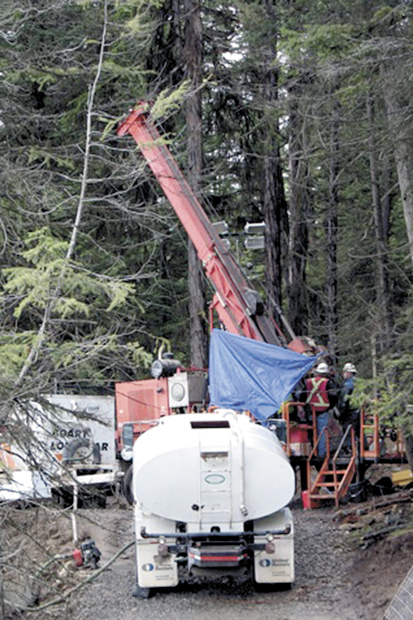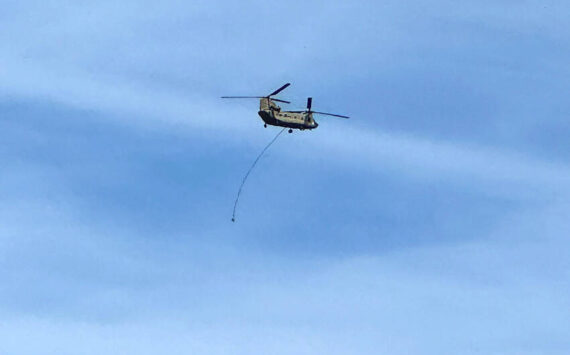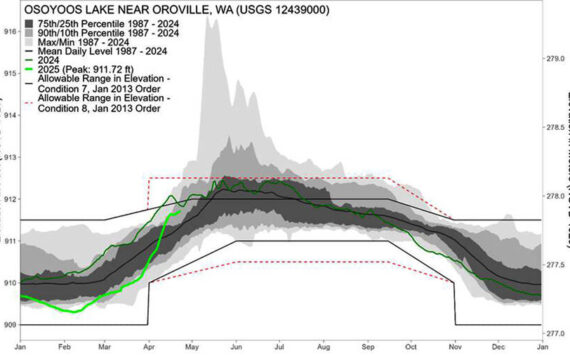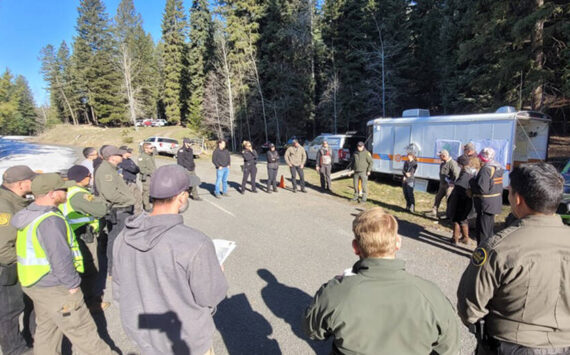Watchdog group says it’s happy with decision
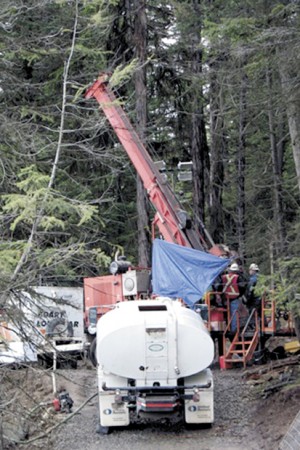
REPUBLIC – Echo Bay Exploration, a subsidiary of Toronto-based Kinross Gold has decided to call it quits and withdraw their Buckhorn Mountain Exploration Project. The exploration had been proposed on nearly 10,000 acres of federal, state and private lands surrounding the Buckhorn Mine which has a closing date in 2015.
The company made the announcement on Wednesday, May 28. Their proposal to drill up to 965 exploration holes began in 2009 and had been undergoing development of a Draft Environmental Impact Statement (DEIS) when the termination announcement was made.
““After five years of effort this is obviously a serious decision, not taken lightly by the company. Echo Bay Exploration is evaluating exploration opportunities in the region, including the perspective of which can be authorized within a reasonable time frame. Echo Bay conducts its mining and exploration activities to high technical and environmental standards, which would apply to future exploration activities,” said Deana Zakar, Community and Government Relations Specialist with Echo Bay Minerals.
The Plan of Operations that Kinross submitted was to do exploration 24/7, utilizing up to 20 drill rigs simultaneously in the Okanogan Highlands above the town of Chesaw, near the US/Canada international border, according to the Okanogan Highlands Alliance (OHA), a watchdog group that has been critical about the mine and it’s parent company in the past. They say questions materialized in the agencies’ environmental review process regarding the accuracy of wetland inventories and the lack of adequate baseline water quality data, in areas where work was proposed such as on steep slopes and through a rare remnant cedar ecosystem.
“OHA welcomes the termination of the massive exploration proposal,” said David Kliegman, Executive Director of the OHA in a recent press release.
“Kinross/Echo Bay is facing the economic reality that its ‘blank check’ approach for unfettered exploration over an entire large block of lands was not going to be feasible if the agencies were going to seriously analyze the impacts,” he adds.
The Kinross proposal called for clearing almost all vegetation in up to three 160-acre areas and for drilling exploration holes on as close as 50-foot centers, with associated drill pads and waste dumps, but Kinross/Echo Bay would not identify upfront specifically where the mineral exploration would take place. The US Forest Service and the state Department of Natural Resources were the lead agencies doing the environmental review, with the state Department of Ecology as a supporting agency. Kinross has canceled all cost share agreements with the agencies.
Kinross stated clearly that it will not abandon efforts to explore in the area. In the future they plan to focus on specific exploration targets that would provide greater opportunity to streamline the process, according to OHA.
“The impacts of past exploration and current mining on Buckhorn cannot be looked at in isolation,” he adds. “The process involves releasing contaminants that were tied up in rock into surface and groundwater. The purpose of our laws is to understand the impacts before actions are taken. It is essential that the agencies take a careful, ‘look before you leap’ approach to protect the land, water and wildlife.”
The group says it will continue to examine and analyze exploration proposals in North Central Washington, “working to ensure that clean water is protected for future generations.”
OHA describes itself as a non-profit organization that works to educate the public about watershed issues, including the environmental threats of large-scale mining.
